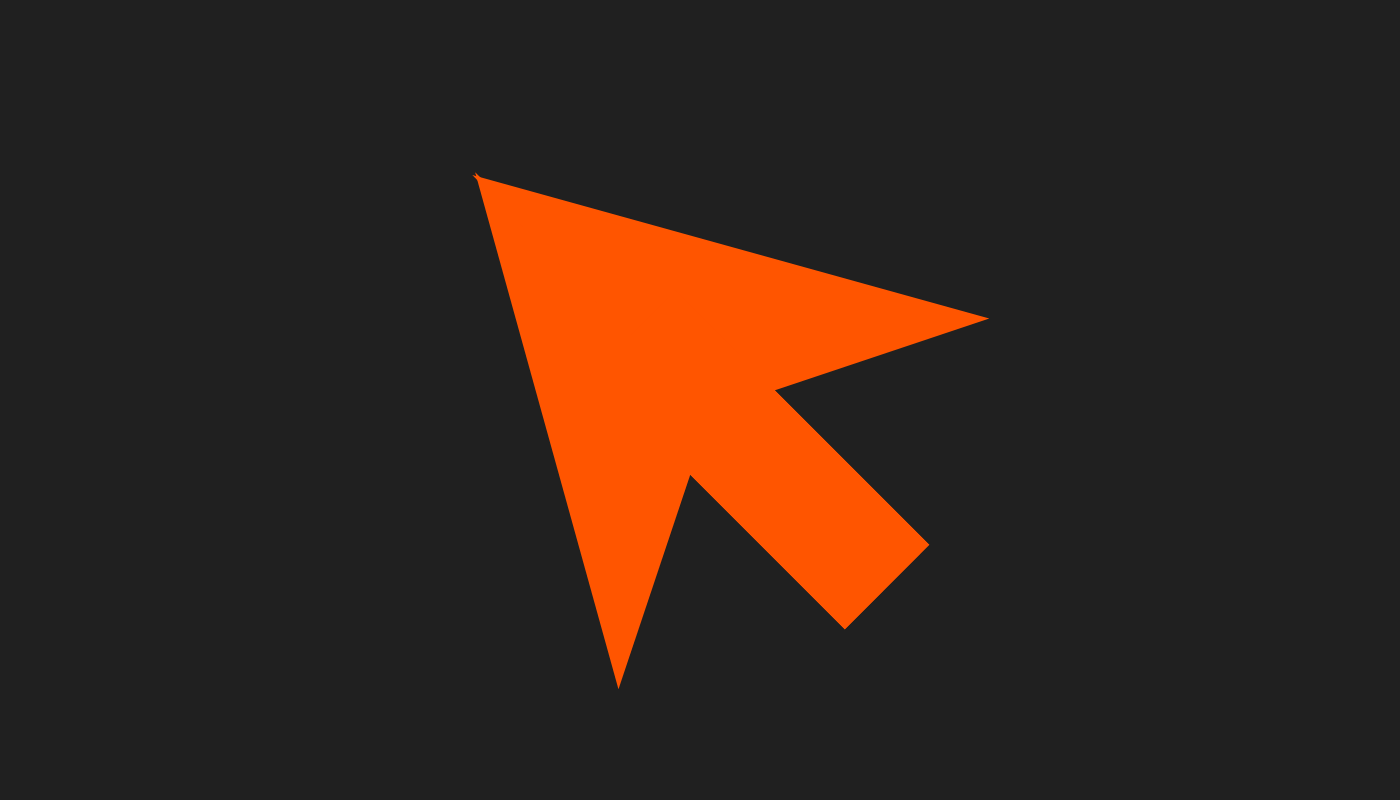CSS - Cursor Icon
Code example for drawing a mouse cursor icon using HTML and CSS.
This HTML code sets the class name "cursor-icon" on the <div> tag that will draw the cursor icon.
It has two child <div> elements for the triangular part and the core part.
<div class="cursor-icon">
<div></div>
<div></div>
</div>The first child <div> uses the pseudo elements "before" and "after" to create the left and right triangles.
The CSS custom property "--w" specifies the reference width for the shape.
"--w" is used to calculate values needed for the cursor icon shape.
It also uses the custom property "--angle" to allow rotating the cursor icon.
/* Container */
.cursor-icon {
--w: 300px; /* Base Size */
--angle: -45deg; /* Rotation */
position: relative;
width: var(--w);
height: var(--w);
}
/* Left and Right Triangles */
.cursor-icon div:nth-child(1) {
position: absolute;
width: var(--w);
height: var(--w);
transform: rotate(var(--angle));
}
/* Left Triangle */
.cursor-icon div:nth-child(1)::before {
content: "";
position: absolute;
top: 5%;
left: 14.5%;
border-bottom: calc(var(--w) * 0.5) solid #ff5500;
border-right: calc(var(--w) * 0.25) solid transparent;
border-left: calc(var(--w) * 0.25) solid transparent;
transform: rotate(-26.5deg) skew(-44.5deg);
}
/* Right Triangle */
.cursor-icon div:nth-child(1)::after {
content: "";
position: absolute;
top: 5%;
left: 35.5%;
border-bottom: calc(var(--w) * 0.5) solid #ff5500;
border-right: calc(var(--w) * 0.25) solid transparent;
border-left: calc(var(--w) * 0.25) solid transparent;
transform: rotate(26.5deg) skew(44.5deg);
}
/* Bottom part */
.cursor-icon div:nth-child(2) {
position: absolute;
top: 30%;
left: 50%;
transform: translate(-50%, -50%);
width: 20%;
height: 60%;
background-color: #ff5500;
transform: rotate(var(--angle));
}

